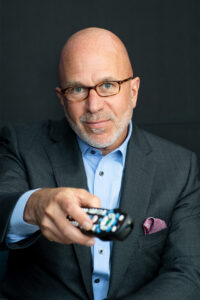They say ‘sunshine is the best disinfectant.’
I agree and believe that thinking extends to cameras in courtrooms, including the Washington, D.C. Federal court where Donald Trump will be tried for election subversion. Media outlets, including CNN, are asking Judge Tanya Chutkan for access. Prosecutors oppose the move. Defense lawyers agree with the media.
Here’s my standard: Anywhere the citizenry can walk in, pull up a chair, and watch its government function, there ought to be a camera permitted.
There’d be a few privacy exceptions for example, juvenile proceedings, but everywhere else, sunshine. Think your local borough council or township supervisors, school board, the county and state courts, congress, and federal courts – including the Supreme Court. It’s a disgrace that we have only audio of Supreme Court arguments and not video.
If you have a right to be there in person, there ought to be a camera present.
But cameras are not permitted in federal courts. Different states have different rules, but in the federal system, cameras are not permitted.
There once was a federal experiment. In the early 1990s, as a young lawyer just starting to practice, I was scheduled to try my first case in federal court. I represented the estate of a man who choked to death at a restaurant while a cashier who was trained in the Heimlich maneuver was prevented by a manager from interceding.
There was then a pilot program for cameras being tested in the federal courts of the eastern district of Pennsylvania. Because I had hired Dr. Henry Heimlich as my expert, Court TV suddenly requested to televise the trial.
I was scared to death of making my trial debut on TV. However, the defense lawyers were more concerned about the story reaching a large audience.
The case settled. Cameras have an impact.
Donald Trump faces four criminal indictments. The most prominent, in my view, most perilous for Trump is the federal subversion case pending in the district court in Washington, D.C., in front of Judge Tanya Chutkan. It’s set for trial next March, right in the middle of the Republican primary voting.
Media outlets are requesting to televise the trial – notwithstanding the federal prohibition. The judge asked the parties to weigh in. Prosecutor Jack Smith’s team said they oppose cameras. They said they worry about witness intimidation. Trump’s lawyers said they want cameras.
The conventional wisdom is that Trump would benefit. He would use the setting as a platform to spin his version, much like he is doing outside Judge Erdogon’s courtroom in the New York civil trial.
In their filing, Trump’s lawyers said this:
“In sum, President Trump absolutely agrees, and in fact demands, that these proceedings should be fully televised so that the American public can see firsthand that this case, just like others, is nothing more than a dreamt-up unconstitutional charade that should never be allowed to happen again.
Furthermore, President Trump is entitled to present his positions in this case to the American public, including his sacred obligation as president to investigate and address fraud and other irregularities in the 2020 presidential election.”
I think they’re bluffing. They understand that federal courts tend to be more rigid, regimented, and regulated than state courts.
I suspect Judge Chutkan would run a tight ship. And that television outlets would clear their schedules to televise a criminal case of a former president in the thick of a campaign. And that while Trump would bluster outside the courtroom, the public would be drawn to the evidence presented on the inside.
That would not be to his advantage.
Trump’s trials should be televised. Not because it would be to his detriment. But because we have a right to see what goes on when our government conducts the people’s business.
_______________________________________________________________________________________________________







